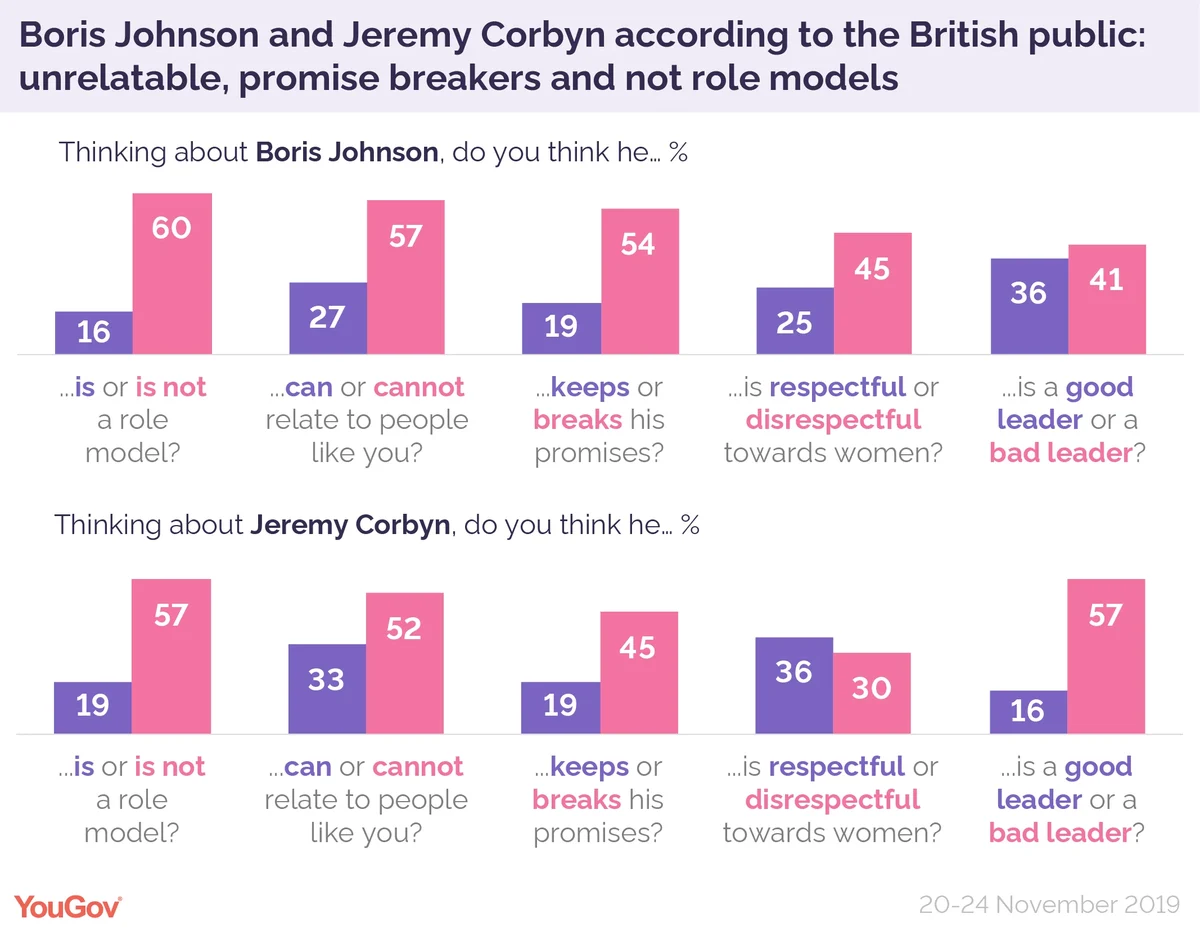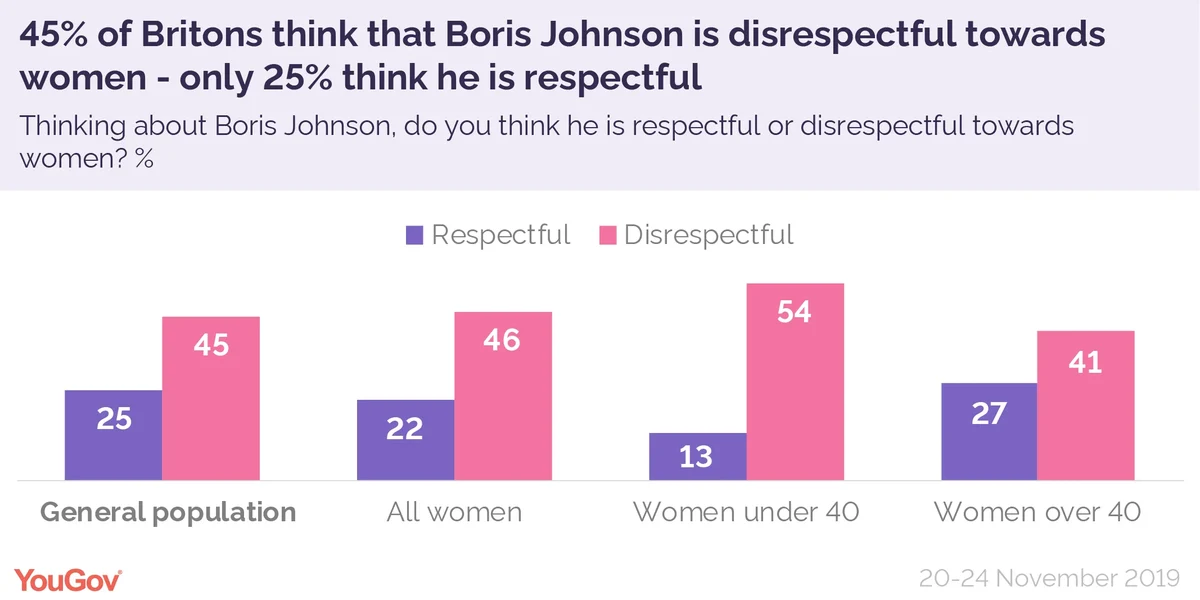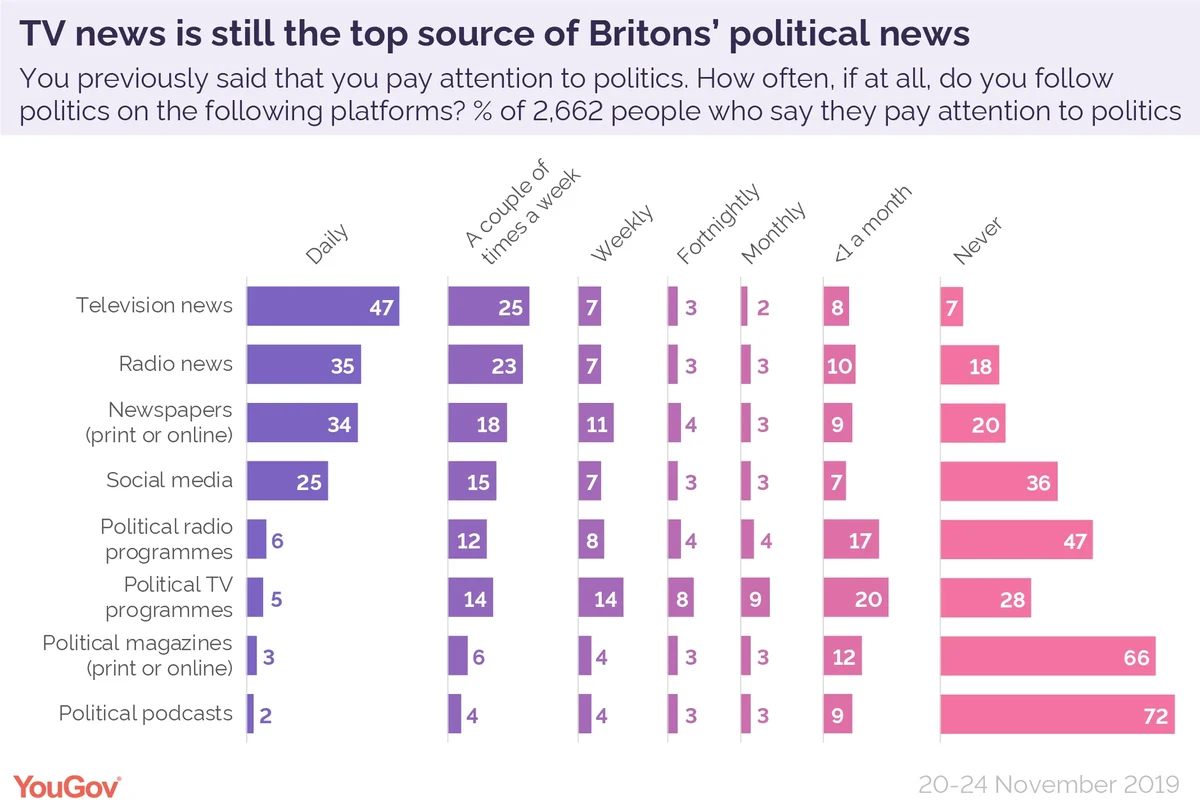Even more Britons are engaged in politics than during the last election, but they do not like what they see and are unconvinced in either Corbyn or Johnson as leaders
Ahead of tonight’s general election debate between Jeremy Corbyn and Boris Johnson we have polled the public on their opinions of the two party leaders. Our data reveals that the nation is paying more attention to politics now than previously, and that neither leader is benefiting from the increased attention.
We asked respondents to think about the two leaders in five key areas; their relatability, whether they keep promises, their respect for women, leadership ability and whether they can be considered a role model.
In all instances except one the negative responses outweighed the positives for both leaders. Only on Corbyn’s respect for women did a plurality (36%) rate him.

With persistent and troubling headlines about the current Prime Minister's personal relationships and misogynistic comments, it’s perhaps no surprise that 46% of women think Boris Johnson is disrespectful towards women.
But the figures should be of even more concern to the Conservatives when we break them down by age. Over half of women under 40 (54%) described the Conservative leader as disrespectful, compared to 41% of females over 40.

The biggest concerns for Corbyn are that 57% of respondents said that he was both a bad leader and not a role model.
Men and women over 40 feel particularly strongly on these two issues: on the subject of leadership, 67% said Corbyn is a bad leader, compared to just 38% of those under 40, while 69% of those over 40 do not see the Labour leader as a role model, compared to 36% of those under 40.
Both leaders have issues with relatability. When asked whether they think the two leaders can relate to people like them, 57 % said that Johnson cannot, and 52 % feel the same way about Corbyn.
Leavers (47%) and the over 65s (42%) were most likely to say that Johnson can relate to them, and for Corbyn the biggest break is along age lines: twice as many over 40s (62 %) say he is unrelatable than those under 40 (33%).
Are people still engaged?
The good news is that 47% of respondents pay more attention to politics today than they did two years ago, and only 14% have moved in the opposite direction.
Unusually, compared to many current polls, this result is consistent across the political spectrum. The figure among supporters of all three major parties, as well as Leavers and Remainers, was between 46% and 49%.
Watching the news on television is the most popular way of following politics, with 79% of respondents tuning in at least once a week. A majority of those over 65 watch the news on television (87%) or read newspapers (72%) at least once a week, while the youngest group rely most heavily on social media (74%).

However, perhaps surprisingly political magazines (in print and online) were most popular amongst the 18 to 24 group, with 23% saying they read one at least once a week.
Of those respondents who said they pay less attention to politics now, 48% blamed it on MPs not listening to the views of people like them. Of the 32% who said that they were bored of politics, many pointed to Brexit as the cause.
Despite an underwhelming reaction to both Boris Johnson and Jeremy Corbyn from the public, this polling suggests that the public remains interested in politics and is paying even more attention to it than during the last election period. The results should give both parties pause for thought.
Photo: Getty









